This quote was used as a slogan for the Black Panthers to protest the oppression and the struggles of all people all over the world.
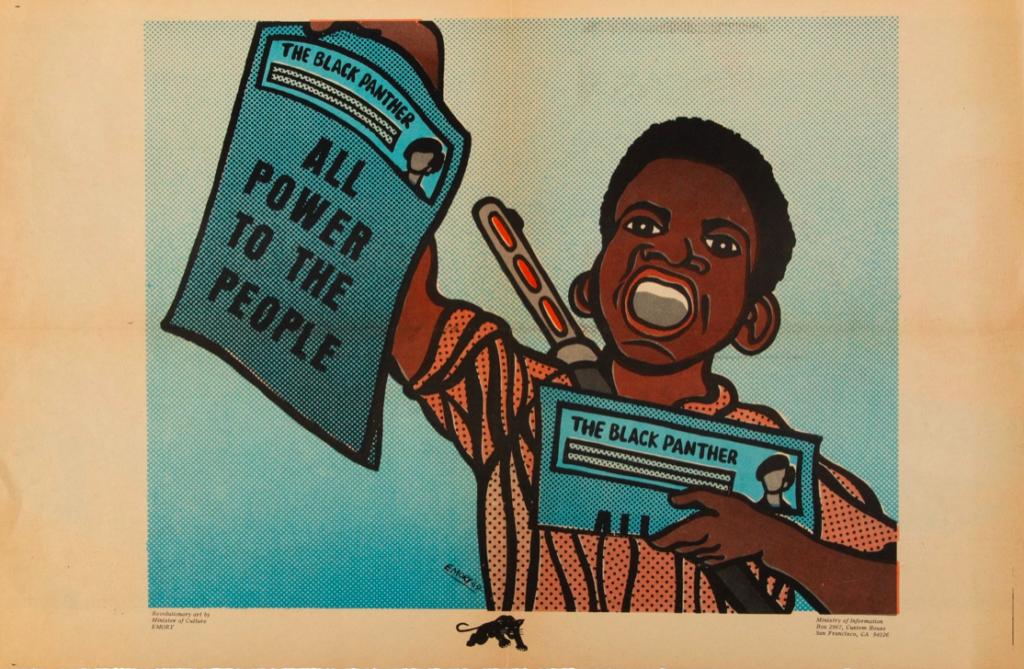
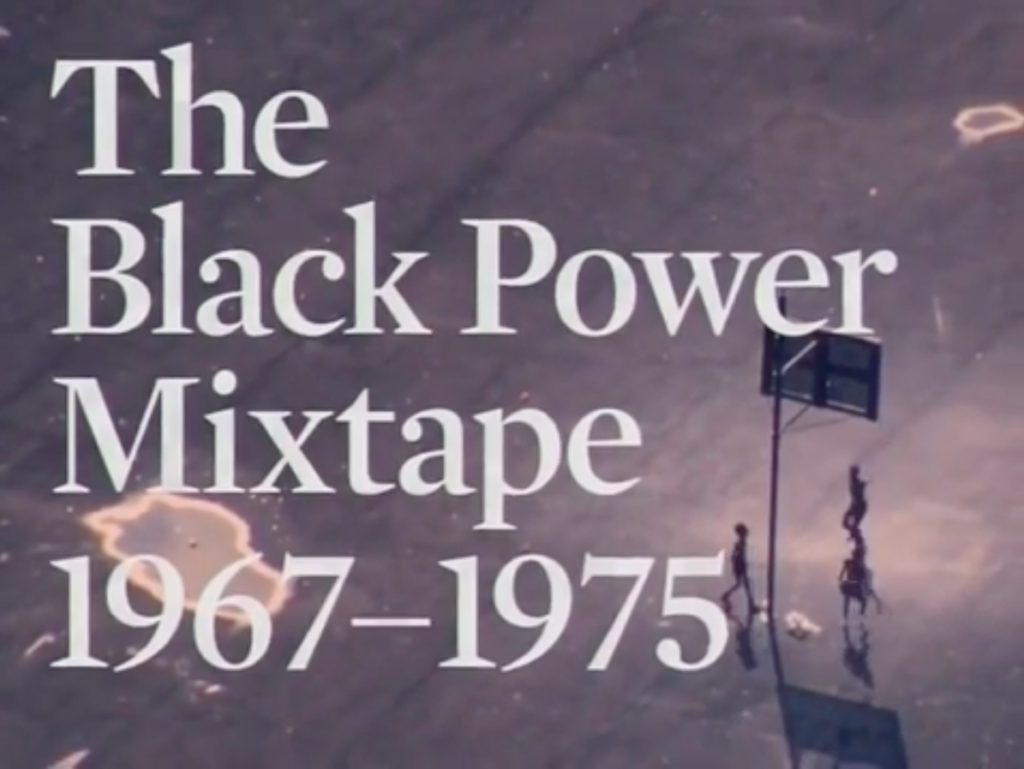
This video is called “THE BLACK POWER MIXTAPE 1967-1975“, which can be found on YouTube. A group of Swedish people wanted to come together and create a film in order to understand and portray America through sound and through image.
1968: In the beginning of the video, they did separate interviews with three people in Miami, Florida. Which the narrator described that they are both, “Just as American as the other.” The first person they interviewed was a small business owner named Al, who is 50 years of age. He states that “The ordinary working man living in America has more protection and freedom than another person living anywhere else“. And he agrees that any and all men are able to make a living for themselves if they work hard enough for it, basically agreeing that all Americans have equal opportunity. The second interview was held in the inner parts of the area, where about 20% of people lived poorly. They interviewed two people named John and Roger, who were both 22 years of age. They stated in the interview that they left for war and came back home. The question was asked, “What is different now that you’ve come back?”. Which John answered back that it feels hard, leaving home to fight for their country just to come back and be treated with discrimination. As Roger stated, “The environment have a whole lot to do with keeping a man down.”
Al is a 50 year old white man. John and Roger are 22 year old black men.
“The environment have a whole lot to do with keeping a man down”.
What Roger meant by this, is that the people and the place they lived had a lot to do with how they were treated. They were treated with discrimination, even though they had just came home from fighting the war for the same people who discriminate them.

1968 “The Special Beginning”

Stokely Carmichael (Right) & Martin Luther King Jr. (Left)
The year 1968, was a very critical year for the people of America. There were lots of protests and war going on around the American people. “If a white person is standing up on the bus, a black person must give up their seats.” Which is Stokely talking about the process of positive protests that Dr. King shares with the people. Which was a peaceful boycott of the buses. Stokely very opening stated that he and Dr. King have the same goals but are also very different in many ways. Dr. King wanted the people to never use violence when it comes to protests. He believed that peaceful protests could lead the oppressors to feel sorry for them and make a change in order to fulfill the goals of the oppressed. Which Stokely replied, “How can we be peaceful, when the U.S. has no conscious.” Even though Stokely was a more forward person than Dr. King, he fully understood Dr. King’s ways of protests. Talib Kweli stated, that Stokely was different. He studied power and was the first person to talk about black power.
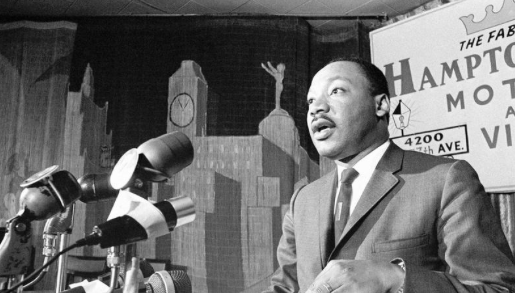
According to Angela Davis, Dr. King was the first public speaker to speak out against the war in Vietnam. Which was one of the reasons why so many people were so against Martin Luther King Jr. According to Harry Relafonte, Dr. King was not afraid of death, he wasn’t afraid of anything. He had a goal for all people to never go to sleep hungry, have access to free healthcare at all times, and to have free education for everyone. But the one thing that “put a bullseye” on Dr. King, was the speaking on Vietnam war. “He was tampering with the playground of the wealthy” (H. Relafonte).
“Malcom Luther King Jr. exposed the existing demons of America.” (A. Oyewole)
“As long as a white man does it, it’s alright.. a black man is supposed to have no feelings.” Malcom X. (Right)

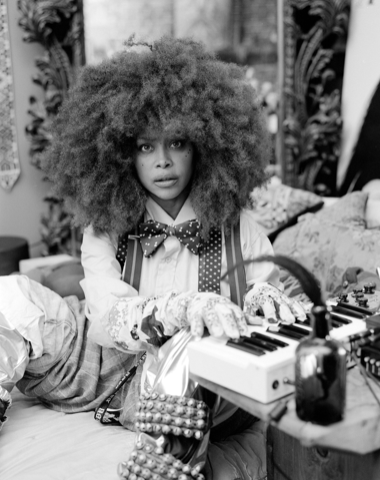
“To say that we’re wrong to defend ourselves is idiotic. Shame on America for that. Shame.” (E. Badu)
Black Panther Party
“Go to jail or die. If you are not ready for neither, then you don’t belong in the Black Panther Party.
1969: The Black Panther is the most militant black organization in the USA, which started in Oakland, California. The Black Panther Party was founded and was lead by Huey Newton in 1966. Their goal was to educate others in the reality of America. They also have goals to fulfill people’s struggles with work, food, housing, and education. They also had different sections of the party to teach people how to defend themselves. One of the most important aspects about the Black Panther Party was that they introduced the “Free Breakfast Program.” Which later on in 1970, J. Edgar Hoover believed that this program was the most dangerous threat to the United States of America. This led to the FBI unleashing the COINTELPRO against the Black Power Movement.
Angela Davis
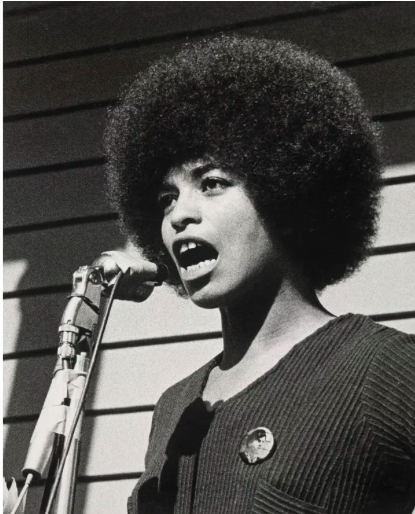
1970: Angela Davis became the 3rd woman to appear on the FBI’s most wanted list.
Angela Davis is from Birmingham, Alabama. She was born in January of 1944. She is a very important figure to different political aspects in America. She spent 18 months in incarceration, due to the shooting including the Soledad Brothers. Angela Davis is a symbol for black struggle against oppression. In this specific interview, she answered a question posed by the interviewer. Along the lines of, “How do you go about a revolution, by violence, by confrontation?” She then stated that when people talk about revolutions, they automatically think of violence.
“The real content of any kind of revolutionary thrust lies in the principles and goals you’re striving for, not in the way you reach them. One the other hand, because of the violence that exist in society everywhere, you have to expect violence, you have to expect explosions. (A. Davis)
I think Angela Davis is a very powerful woman. She is seen as one of the most intelligent and knowledgeable person during these hard times of black struggles in America. What I think about her speech on violence, is that it is very informative. She gave insight as to what should be looked at, which are the goals and the fulfillments of the oppressed people, rather than the techniques they use to get their point across. I believe that this interview was important to hear because she tells us what her own family had to do to survive. What they had to do to defend themselves from their own environment. As she stated, “It’s incredible, because if someone asks about violence, knows nothing about what black people go through in this country. Since the time the first black person was kidnapped from the shores of Africa.”
As of 1974, there was an increase in drugs and drug dealings in America. There had been many cases in which the population that was coming into hospitals because of drug overdoses, were 13-15 year old young black boys. “Drugs were responsible for the receding revolutionary impulses all over the world.” is what Angela Davis had to say about the increase of drugs in America. She means that when the drugs started coming in, people were looking forward to getting high in order to escape their problems instead of facing them head-on as they did in the old days.
“Black is beautiful, but black isn’t power. Knowledge is power. You can be as black as a crow, or as white as snow, and if you don’t know… then you can’t go and that’s for sure.” (L. Michaux)

Comments
5 responses to ““ALL POWER TO THE PEOPLE””
Hey, Carmen! Wow, I have no idea if it’s the change of seasons, allergies, or something else, but reading your blog post made me tear up a little (the topic of revolutionary movements sits very close to my heart!). What an absolutely wonderful blog, and the contents you gave as well as the information about the AMAZING Black Activists was phenomenal, especially the use of their quotes and what they believe in.
Being Indigenous and queer myself, I know the position of being marginalized, especially from the eyes of the government – revolutionary groups such as the Black Panthers are an inspiration to me. My Central Yup’ik culture has embraced the value of not retaliating against anyone or anything that is hurting us, which led to /some/ laws in Alaska to sway towards more about what gives them money instead of witnessing what is hurting us. For the longest time, the trawlers and commercial fishing in the Bering Sea have gained money and ability to mistreat what they catch without giving a second thought of who is hurting from their actions. Hundreds and thousands of families are starving now, because the laws about when to subsist for fish are beginning to crack down every year. I grew up with adults who would constantly go on a rant about the government and trawlers, and I didn’t understand until I saw it hurt families including mine. Though we couldn’t do anything, because the value of not retaliating caused us to not want to use our voices. Even to this day, I am scared to mention this anywhere, because I truly think that the government is watching Indigenous people, and will do anything to make sure we stay quiet.
But it’s not just the lack of fish that’s hurting us, it’s truly deeper than that. Hopefully, one day, one of us will gain the confidence and bravery to speak up and act for a change, just as the Black Panthers and Black Activists have done previously.
Thank you so much for sharing your blog, and I hope you have a wonderful rest of your week!
Hey, Carmen! Wow, I have no idea if it’s the change of seasons, allergies, or something else, but reading your blog post made me tear up a little (the topic of revolutionary movements sits very close to my heart!). What an absolutely wonderful blog, and the contents you gave as well as the information about the AMAZING Black Activists was phenomenal, especially the use of their quotes and what they believe in.
Being Indigenous and queer myself, I know the position of being marginalized, especially from the eyes of the government – revolutionary groups such as the Black Panthers are an inspiration to me. My Central Yup’ik culture has embraced the value of not retaliating against anyone or anything that is hurting us, which led to /some/ laws in Alaska to sway towards more about what gives them money instead of witnessing what is hurting us. For the longest time, the trawlers and commercial fishing in the Bering Sea have gained money and ability to mistreat what they catch without giving a second thought of who is hurting from their actions. Hundreds and thousands of families are starving now, because the laws about when to subsist for fish are beginning to crack down every year. I grew up with adults who would constantly go on a rant about the government and trawlers, and I didn’t understand until I saw it hurt families including mine. Though we couldn’t do anything, because the value of not retaliating caused us to not want to use our voices. Even to this day, I am scared to mention this anywhere, because I truly think that the government is watching Indigenous people, and will do anything to make sure we stay quiet.
But it’s not just the lack of fish that’s hurting us, it’s truly deeper than that. Hopefully, one day, one of us will gain the confidence and bravery to speak up and act for a change, just as the Black Panthers and Black Activists have done previously.
Thank you so much for sharing your blog, and I wish that you may have a great rest of your week!
Carmen, this is a really powerful blog and the video you are talking about is a really impactful movie. I love the way you framed this blog and thought into the layout you put. In terms of the movie itself, it brings up a lot of memories and experiences for me. As a half African-American woman with a fully African-American father who was born during the civil rights movement in the deep south, we’ve had a lot of generational trauma and shared and not-shared discrimination experiences. It is insane just how different you experience opportunity and life based on your appearance, it’s part of why I chose social work and my research I am doing. Although this movie was not made by African-Americans for African-Americans, I think it still covers a lot of good basic information about the topic.
Carmen,
Your blog looks AWESOME! The flow is great, and I like the choices you made with it. Nice job!
I was wholly unaware that they saw a children’s Free Breakfast Program as a “threat to the United States”. I think my jaw actually dropped a little at that. I got the whitewashed version of history in school, like many of us. Shame on them for that. I think that we could have a lot more compassionate society if we learned what was really happening to those who came before us.
The more I learn about, what really are atrocities to POC (then and even now, really), the more I wish I would have known sooner so I could have practiced that compassion and understanding earlier on. Alas, we cannot go backwards. Your blog was informative and detailed, and I really appreciated your idea of doing it as a timeline, because it made it really easy to follow and read.
I do however, agree, that Angela Davis was a force to be reckoned with! If you want anyone leading a movement, it is someone like her – just an absolute bad a** who takes no bull. The fact that so many people had to go into hiding, or ended up in prison as a political prisoner, is so shameful to me, in a lot of ways. I watched a podcast last semester (of Professor Stettler’s), and I cannot recall the guests, specifically, but I do remember watching that and immediately beginning to look into ACTUAL history of things, and started looking at books about these political prisoners, and so on. It was just a deep dive for me because I was floored at some of the things I was hearing.
Thank you for doing such an eloquent job of giving the facts, even the tough ones. I learned something from your blog, for sure.
Do you think that today’s climate/environment/social culture would respond to leaders referenced in your blog differently, the same, worse, better, than they did then?
Absolute wonderful post! I remember a comedian a few years ago, Daniel Tosh, said, “You wanna fix racism in this country? … Make EVERY policeman black.” I laughed, but in retrospect, I have to admit that I think it might be a good thing to try. Of course, that would never happen, but it would be an interesting experiment.
I’m not sure what i feel about the Black Panther movement. On one hand, I can see how they were absolutely necessary for the the black rights movement to make headway, but I have to admit that as a white person, some of their rhetoric, “Kill the white’s babies.” is difficult to hear. I understand that it was their experience that helped them to become racist in their own right, and realistically, what else could anyone expect., Again, great post.